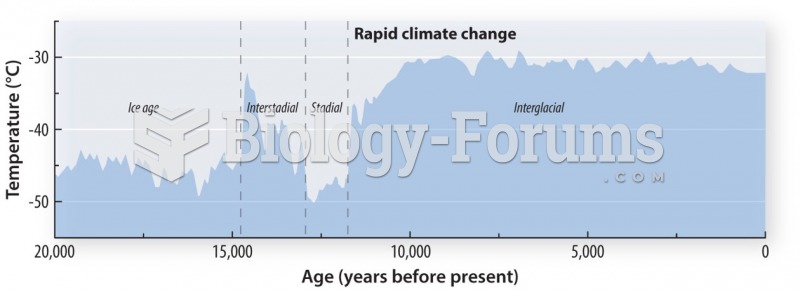|
|
|
The average human gut is home to perhaps 500 to 1,000 different species of bacteria.
Eating food that has been cooked with poppy seeds may cause you to fail a drug screening test, because the seeds contain enough opiate alkaloids to register as a positive.
Inotropic therapy does not have a role in the treatment of most heart failure patients. These drugs can make patients feel and function better but usually do not lengthen the predicted length of their lives.
A headache when you wake up in the morning is indicative of sinusitis. Other symptoms of sinusitis can include fever, weakness, tiredness, a cough that may be more severe at night, and a runny nose or nasal congestion.
Chronic necrotizing aspergillosis has a slowly progressive process that, unlike invasive aspergillosis, does not spread to other organ systems or the blood vessels. It most often affects middle-aged and elderly individuals, spreading to surrounding tissue in the lungs. The disease often does not respond to conventionally successful treatments, and requires individualized therapies in order to keep it from becoming life-threatening.
 Where mangrove diversity is high, mangrove species show clear patterns of vertical zonation relative
Where mangrove diversity is high, mangrove species show clear patterns of vertical zonation relative
 In some species, dominant females have more surviving offspring that mature earlier indicating an ad
In some species, dominant females have more surviving offspring that mature earlier indicating an ad
 Horizontal, frontal (coronal), and sagittal planes in the human brain and a cross section of the ...
Horizontal, frontal (coronal), and sagittal planes in the human brain and a cross section of the ...




